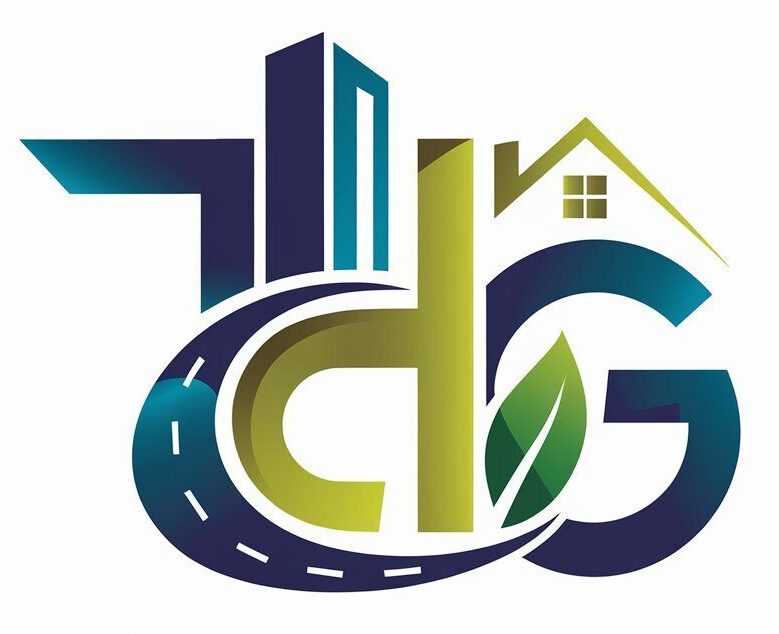Legal Considerations
Legal Considerations
Buying a custom home is an exciting yet complex process that involves several legal considerations. Unlike purchasing a pre-built home, building a custom home requires working with multiple parties, including architects, builders, and contractors, each governed by legal contracts and regulations. Understanding these legal aspects can help prevent disputes, ensure compliance, and protect your investment. This guide outlines key legal considerations, including contracts, zoning laws, permits, financing, and warranty protections.
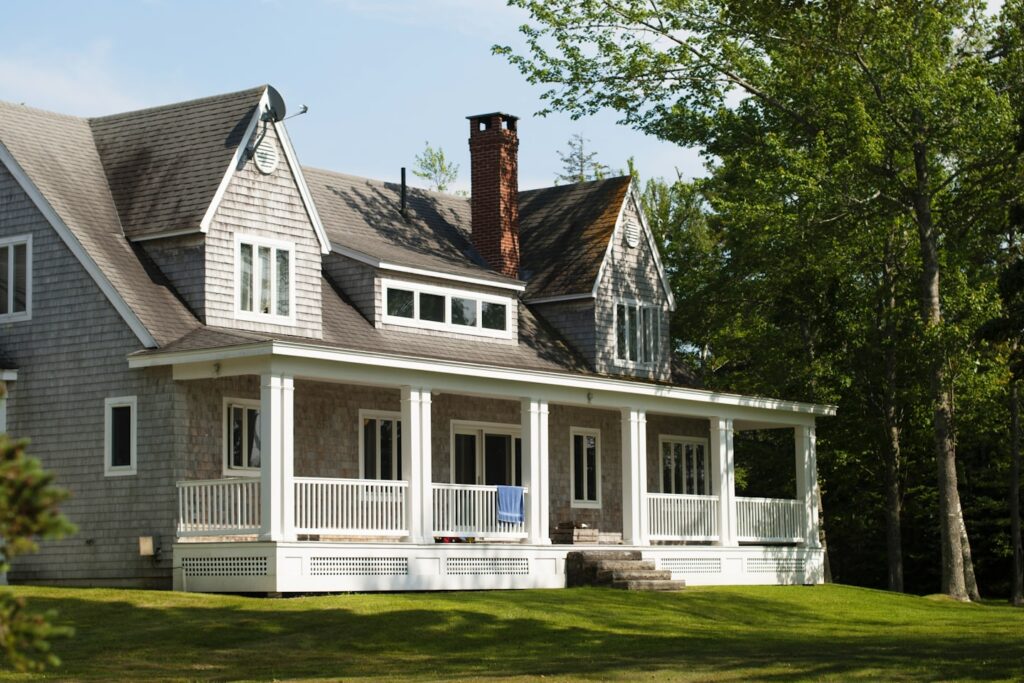
1. Contracts and Agreements
A custom home purchase involves multiple contracts with different parties. These contracts should clearly outline responsibilities, timelines, costs, and dispute resolution mechanisms.
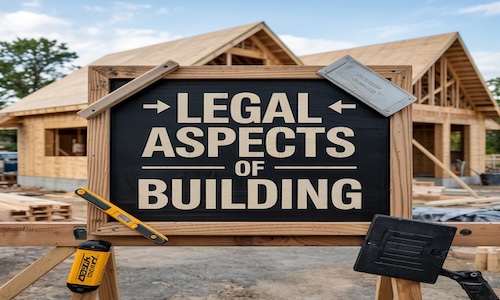
Key Contracts:
- Builder Agreement: Covers scope of work, materials, project timeline, payment schedule, and penalties for delays.
- Architect Agreement: Defines design specifications, blueprint revisions, and project oversight.
- Land Purchase Contract: If buying land separately, ensure the contract details zoning, land use restrictions, and ownership rights.
- Subcontractor Agreements: Contracts with electricians, plumbers, and other specialists to define their roles and responsibilities.
- Material Supplier Agreements: Ensures timely delivery and quality assurance of construction materials.
- Change Order Agreements: Outlines procedures for making modifications to the construction plan, preventing cost and timeline disputes.
2. Zoning Laws and Land Use Regulations
Before purchasing land for a custom home, check zoning laws and land use restrictions. Zoning laws regulate the type of structures allowed, property size, setbacks, and land use.
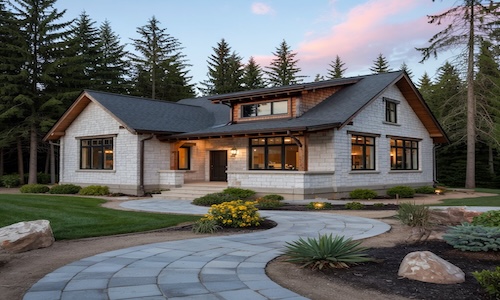
Key Considerations:
- Zoning Restrictions: Verify that the land is zoned for residential use and that your home plans comply with local regulations.
- Environmental Regulations: Some areas have restrictions on building near wetlands, flood zones, or protected lands.
- HOA Rules: If your home is within a homeowners’ association (HOA), review HOA bylaws for restrictions on home design, landscaping, and exterior modifications.
- Easements and Land Access: Determine if there are any easements on the property that could affect access, utilities, or future expansion plans.
3. Permits and Regulatory Compliance
Building a custom home requires multiple permits to ensure compliance with safety and environmental standards. These permits vary by jurisdiction but generally include:
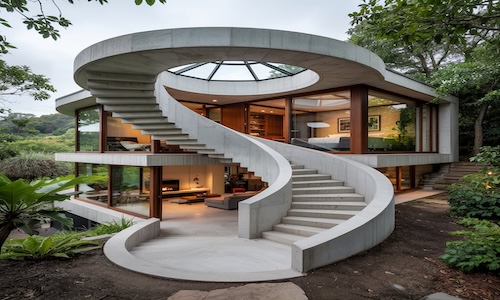
Types of Permits Required:
- Building Permit: Ensures the home meets local construction codes.
- Electrical and Plumbing Permits: Required for installing electrical wiring and plumbing systems.
- Environmental Permits: May be needed for land grading, tree removal, or wastewater management.
- Occupancy Permit: Issued once the home is completed and deemed safe for living.
- Fire and Safety Inspections: Required in some areas to confirm compliance with fire prevention measures.
Failure to obtain the necessary permits can result in fines, work stoppages, or legal action.
4. Financing and Legal Protections in Loan Agreements
Many custom homebuyers use construction loans, which differ from traditional mortgages. A construction loan provides funds in phases as the home is built.
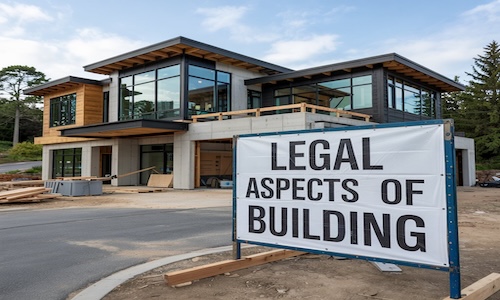
4. Financing and Legal Protections in Loan Agreements
Many custom homebuyers use construction loans, which differ from traditional mortgages. A construction loan provides funds in phases as the home is built.
Loan Considerations:
- Loan Disbursement Schedule: Ensure the payment schedule aligns with project milestones.
- Lien Waivers: Protect against subcontractors placing liens on your property due to unpaid work.
- Interest Rates and Loan Conversion: Some loans convert into a standard mortgage after construction; verify terms before signing.
- Contractor Payment Terms: Ensure the payment process is structured to avoid overpaying for incomplete work.
- Escrow Protections: Some lenders require funds to be held in escrow until each project phase is satisfactorily completed.
5. Builder’s Warranty and Consumer Protections
Custom homebuyers should ensure their builder provides a comprehensive warranty. This protects against construction defects and material failures.
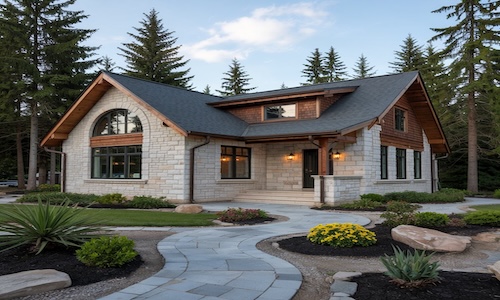
Typical Warranty Coverage:
- Structural Components: Foundation, walls, and roof (typically covered for 10 years).
- Systems Warranty: HVAC, plumbing, and electrical systems (usually covered for 2-5 years).
- Workmanship and Materials: Paint, flooring, and cabinets (coverage varies, often 1-2 years).
- Code Compliance Warranty: Some warranties ensure the home was built to meet all relevant codes and standards.
Review warranty terms carefully to understand coverage limits and exclusions.
6. Liability and Insurance Considerations
Building a home carries risks, so it’s essential to have the right insurance coverage.
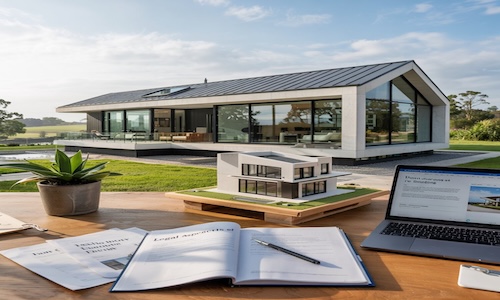
Essential Insurance Policies:
- Builder’s Risk Insurance: Covers damages during construction, such as fire or theft.
- Homeowner’s Insurance: Protects against damage once the home is completed.
- General Liability Insurance: Protects against injuries or accidents on the construction site.
- Flood and Disaster Insurance: Depending on the location, additional policies may be needed for floods, earthquakes, or hurricanes.
- Title Insurance: Protects against ownership disputes, liens, or fraudulent claims on the property.
Confirm with your builder that they carry adequate insurance to cover potential liabilities.
7. Dispute Resolution and Legal Remedies
Construction disputes can arise due to delays, cost overruns, or subpar workmanship. Having a dispute resolution plan in place can save time and legal costs.
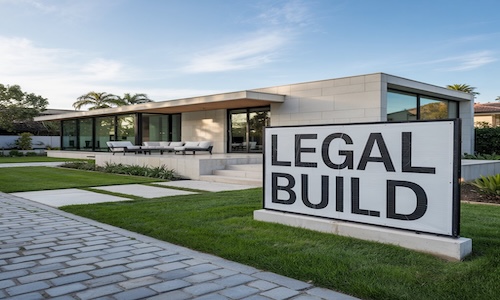
Common Dispute Resolution Methods:
- Mediation: A neutral third party helps both sides reach an agreement.
- Arbitration: A legally binding alternative to court litigation.
- Litigation: Taking legal action in court if other resolution methods fail.
- Contractual Penalties: Some agreements include penalties for delays or failure to meet quality standards.
- Performance Bonds: These financial guarantees ensure the builder completes the project as agreed.
Clearly define dispute resolution terms in your contracts to avoid costly legal battles.
8. Legal Considerations for Smart Homes and Sustainability
As smart home technology and sustainable building practices become more common, legal aspects must be considered.
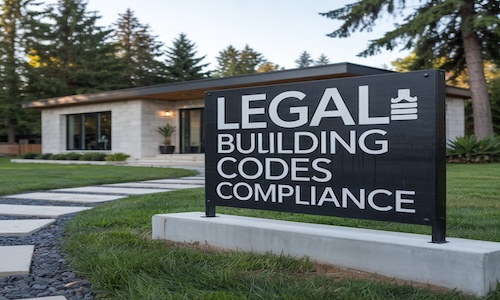
Smart Home Regulations:
- Data Privacy Compliance: Smart home devices may collect personal data, which must comply with privacy laws.
- Security Concerns: Some jurisdictions have regulations on cybersecurity protections for smart home networks.
Sustainability and Green Building Laws:
- Energy Efficiency Standards: Some areas require new homes to meet specific energy efficiency requirements.
- Solar Panel Regulations: Local laws may impact solar panel installation, grid connection, and tax incentives.
- Water Conservation Laws: Some states mandate water-saving measures, like low-flow fixtures and rainwater harvesting systems.
